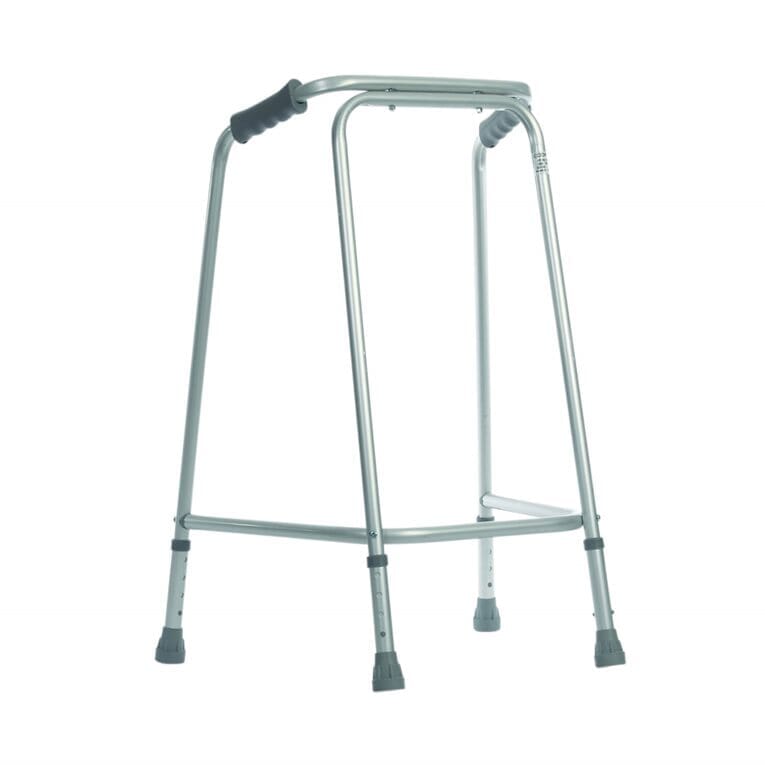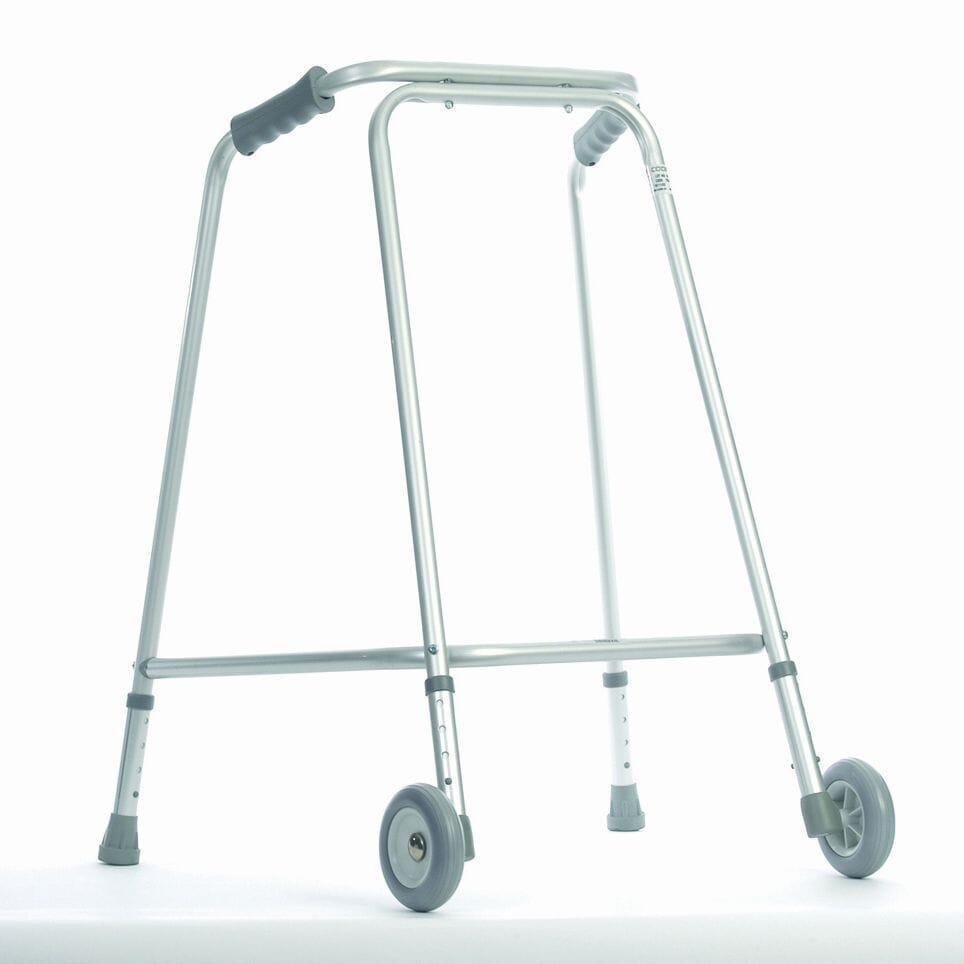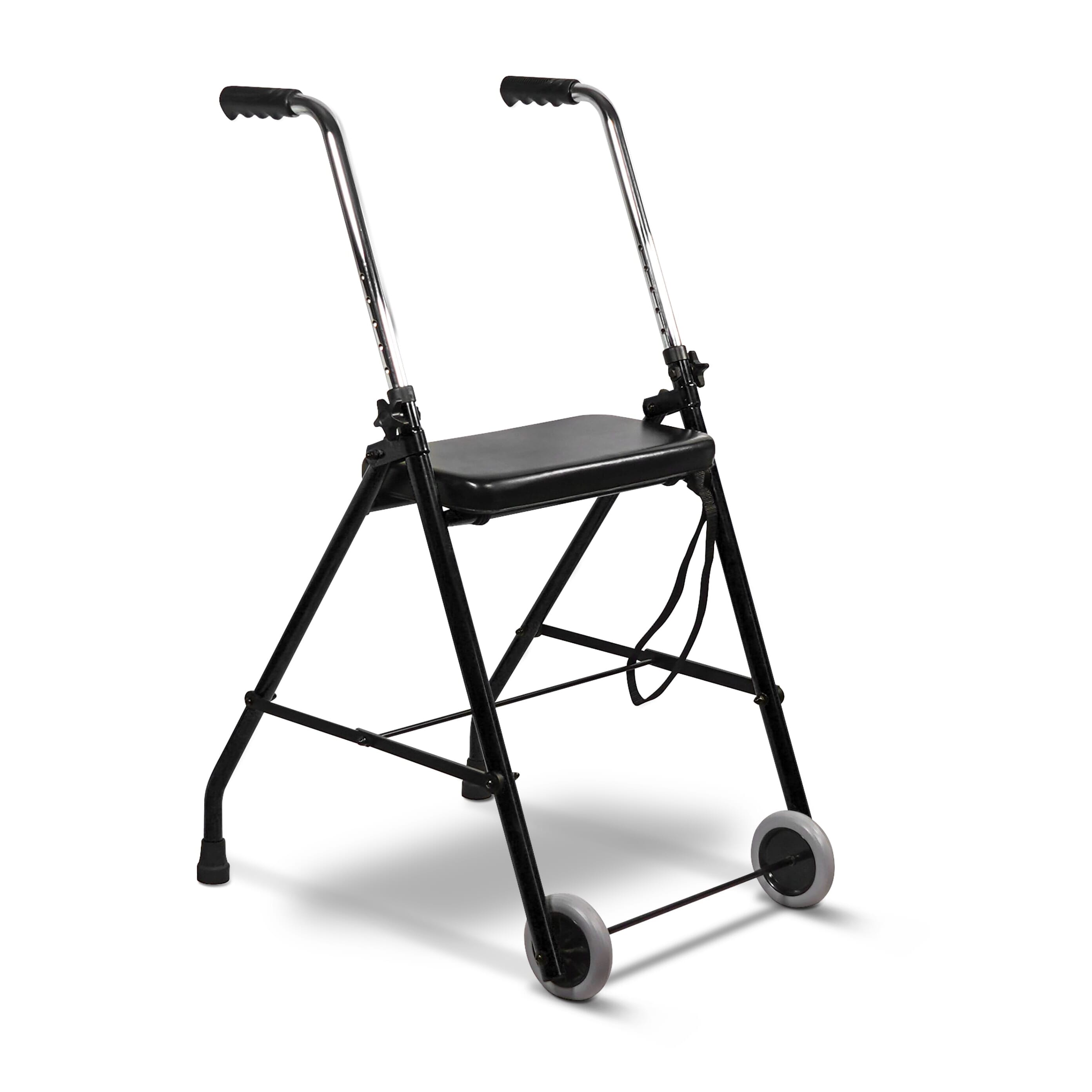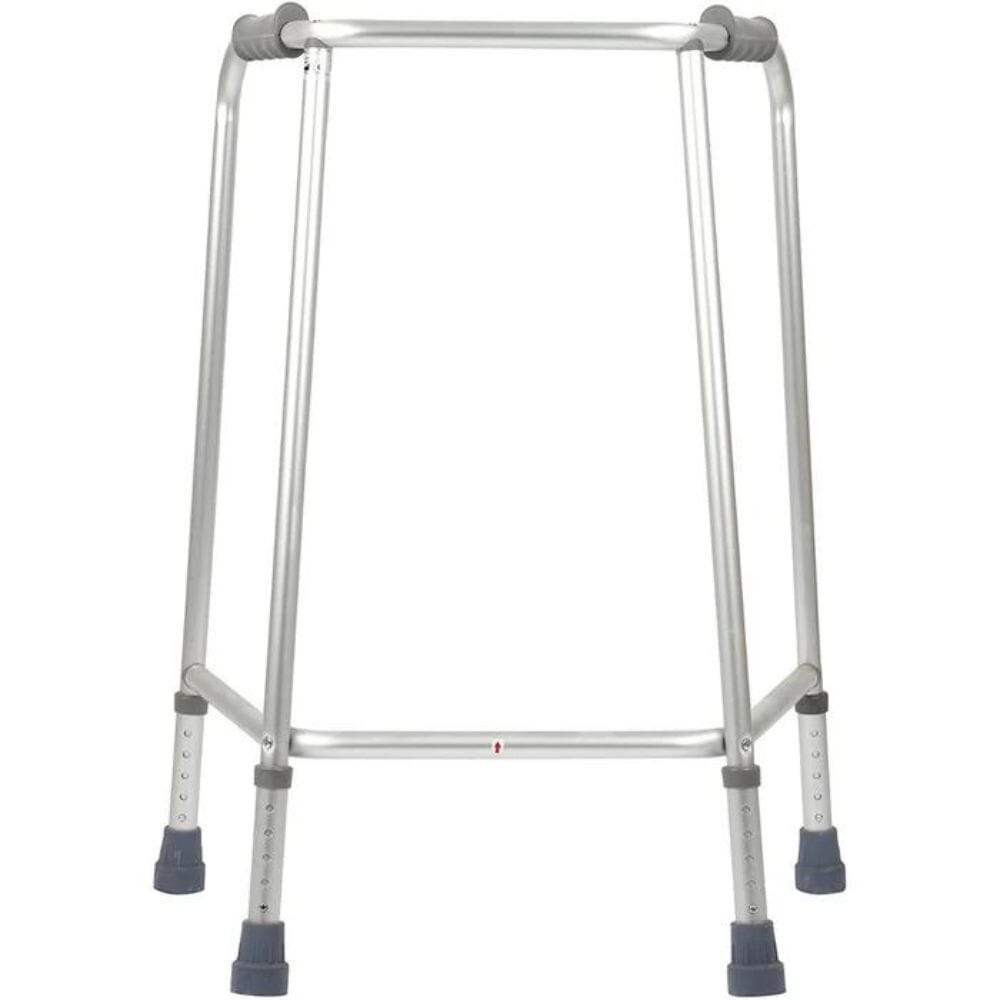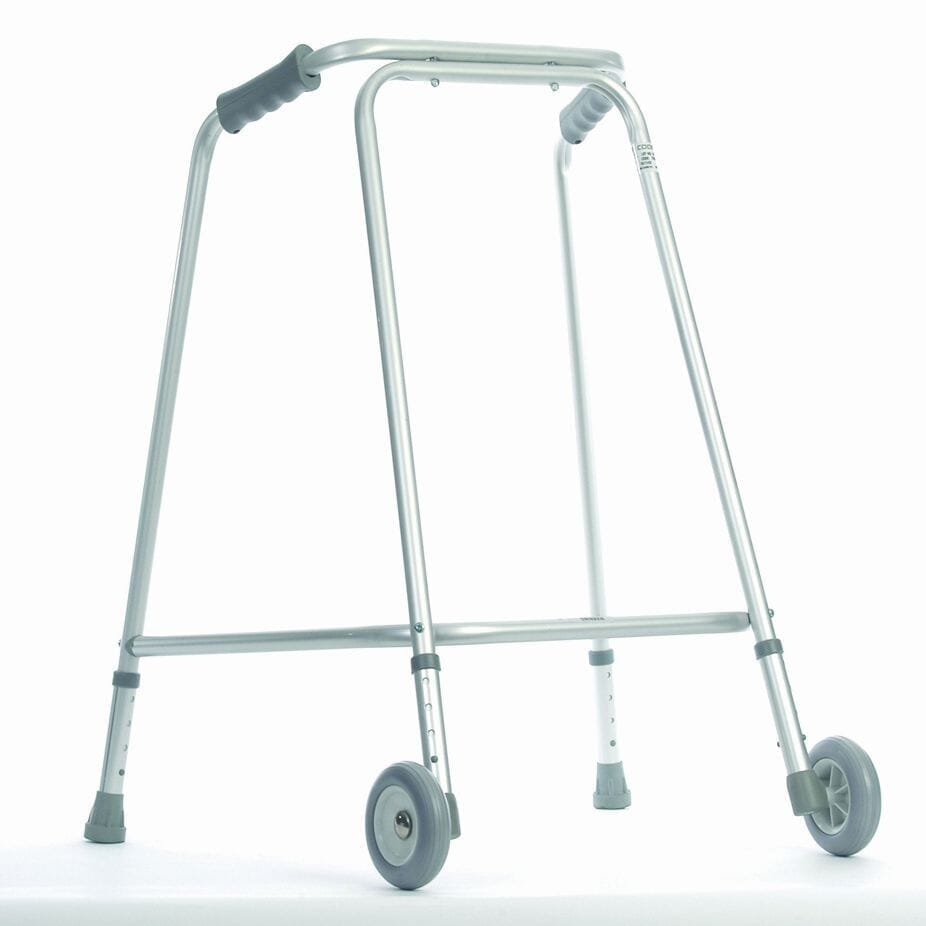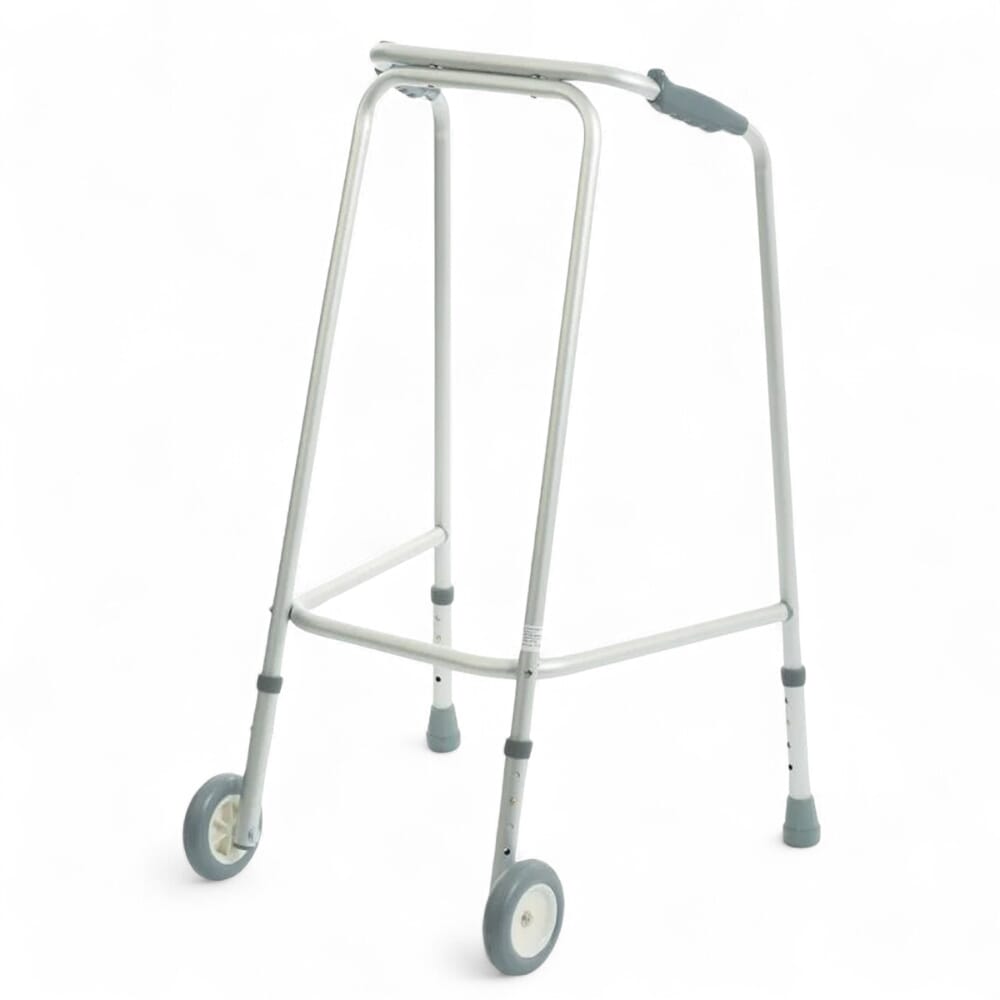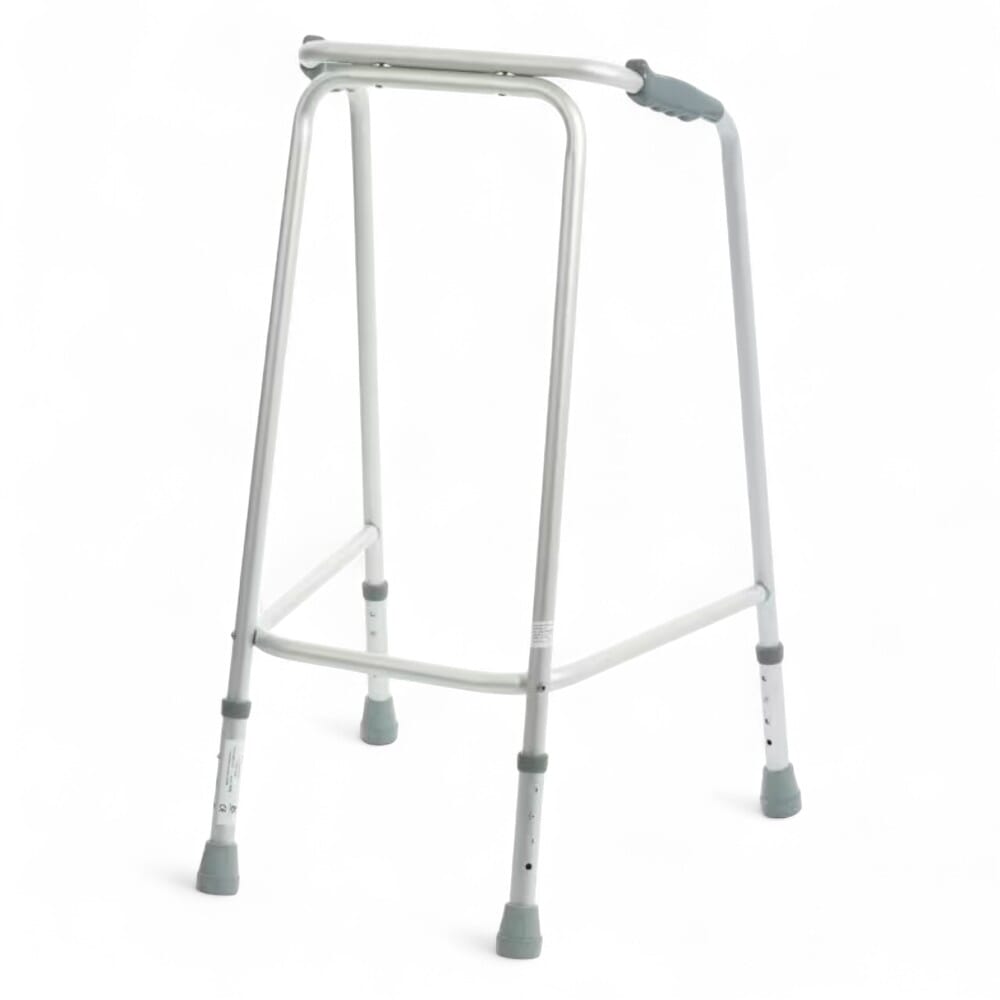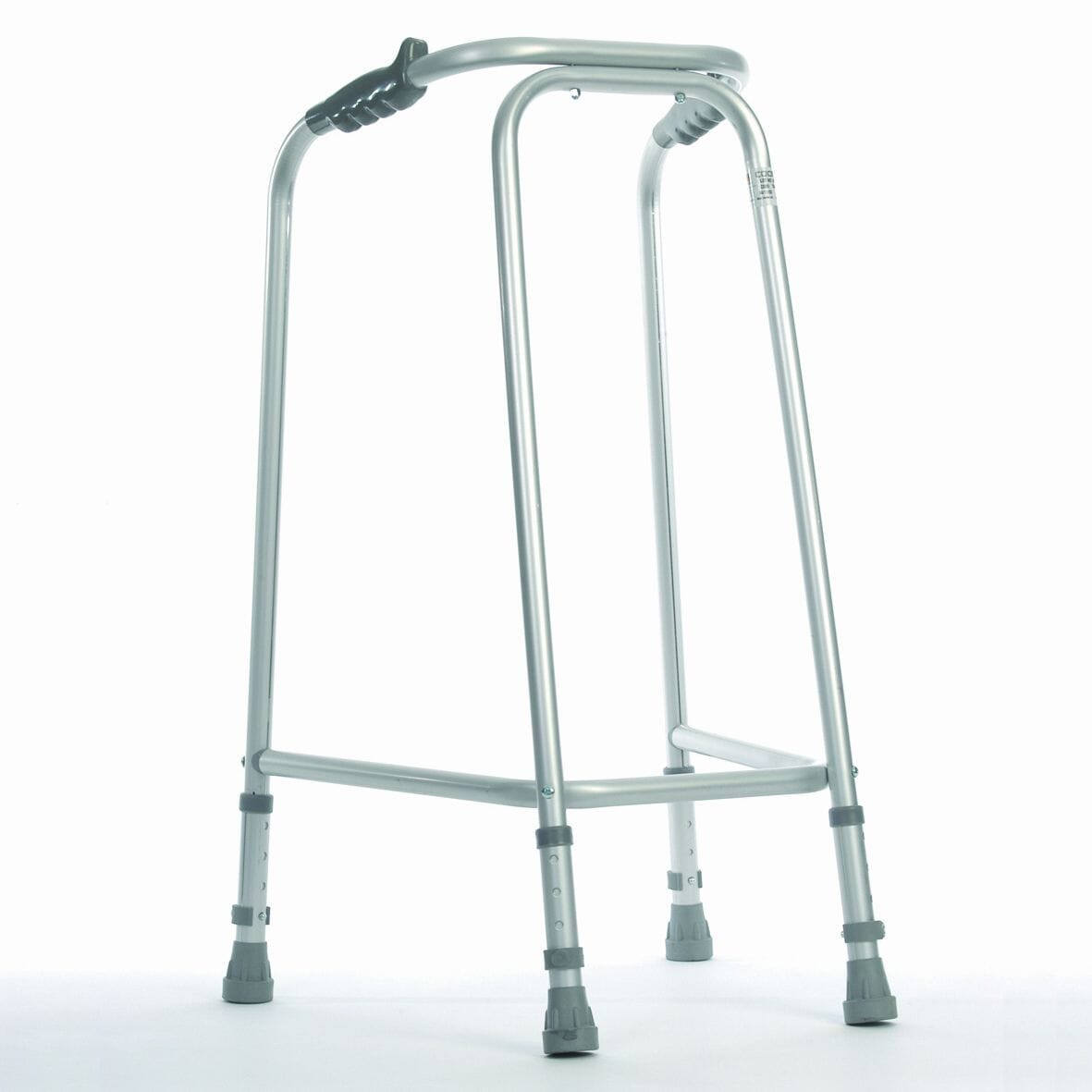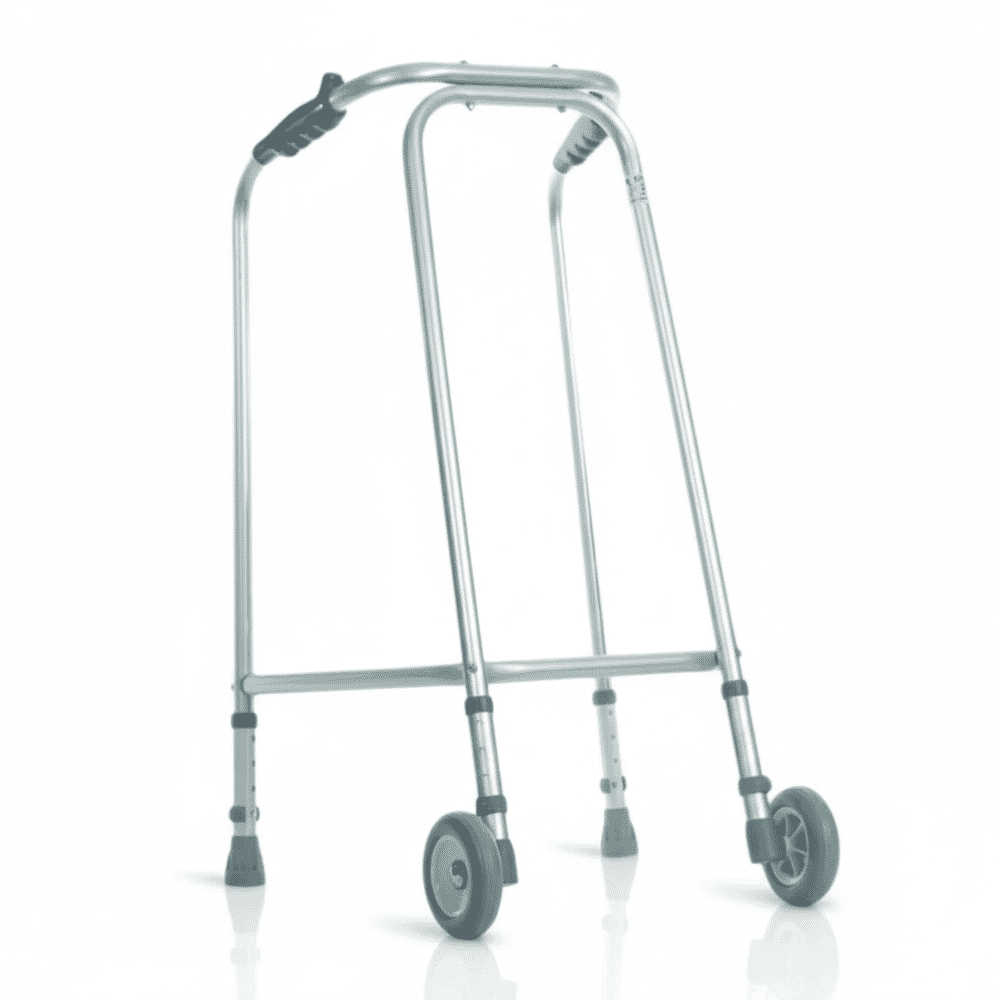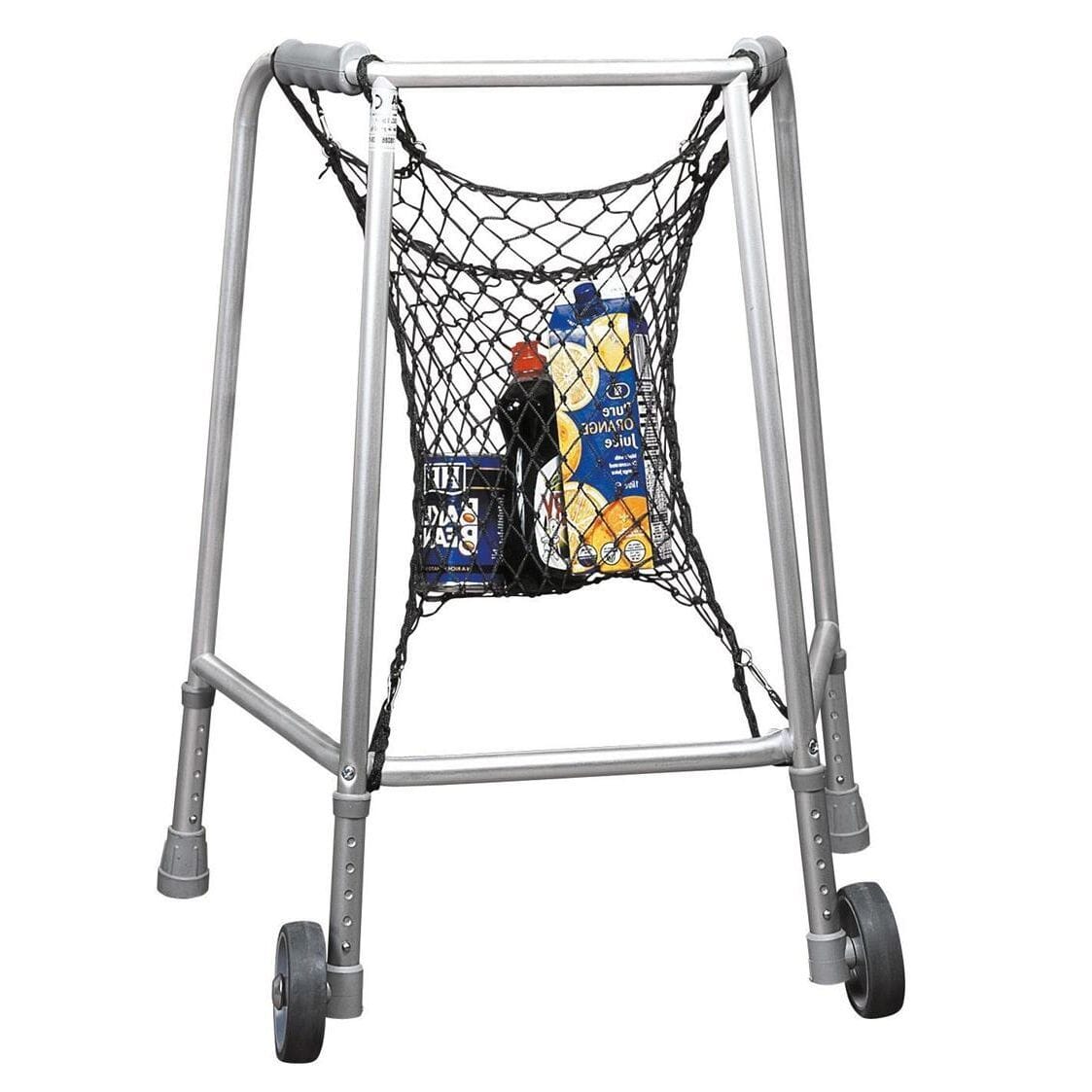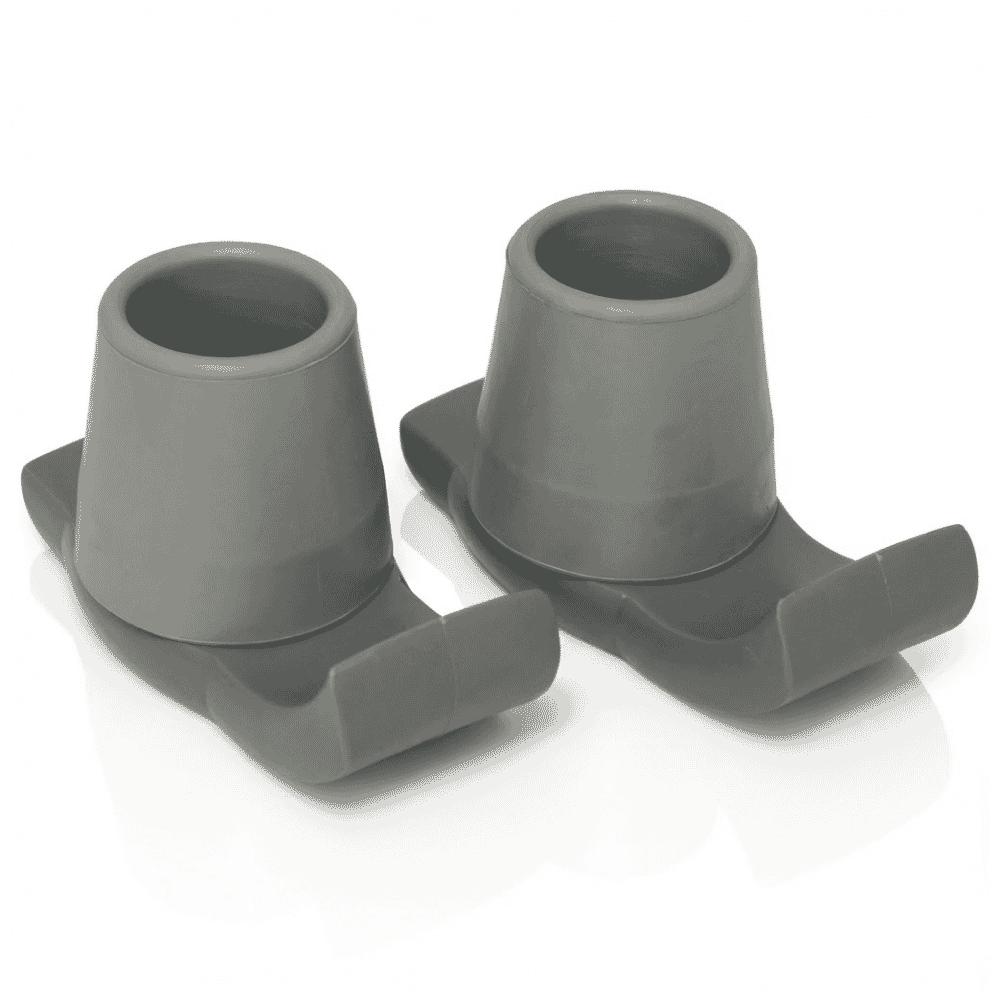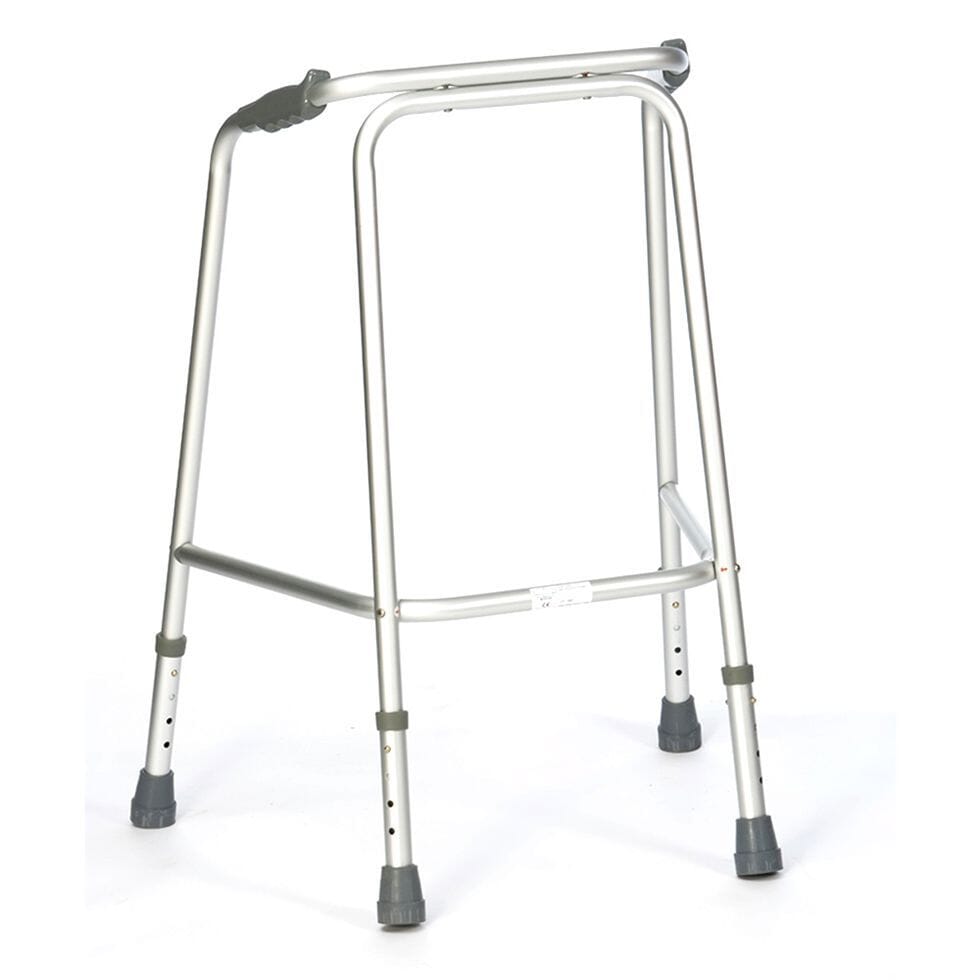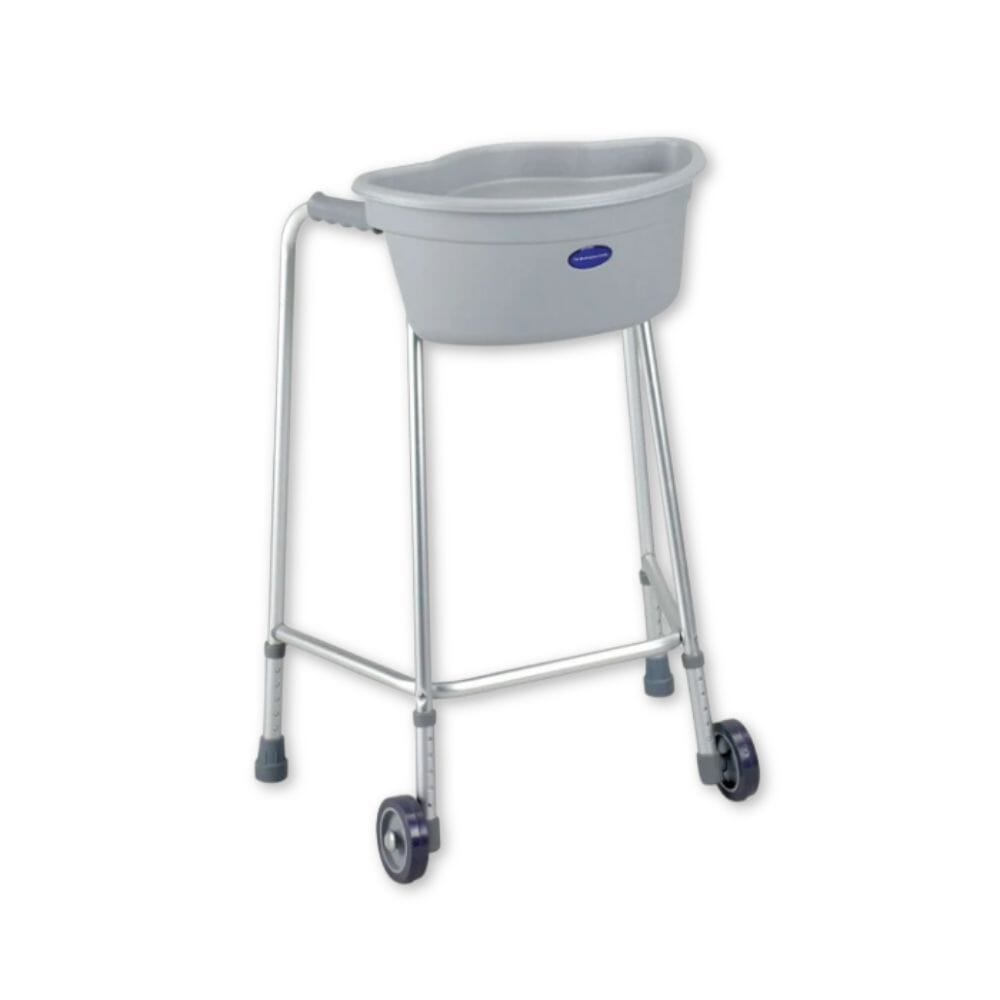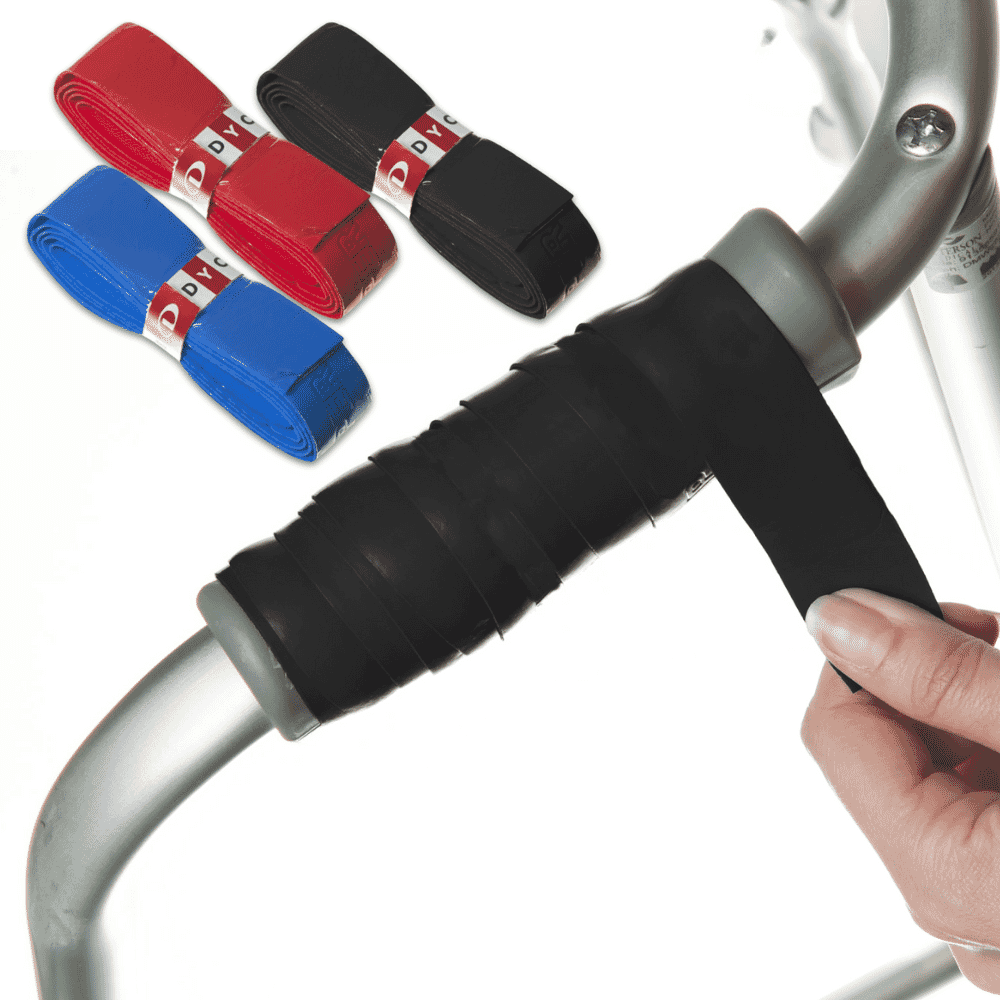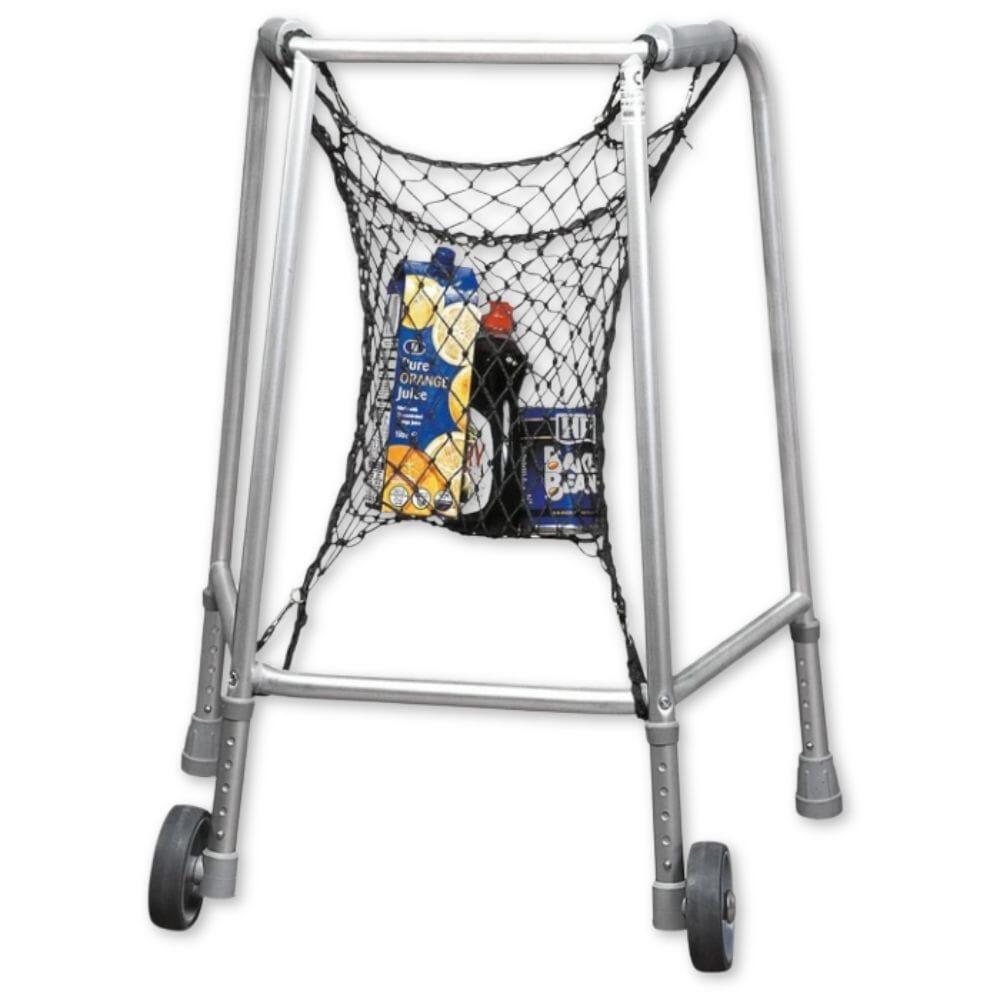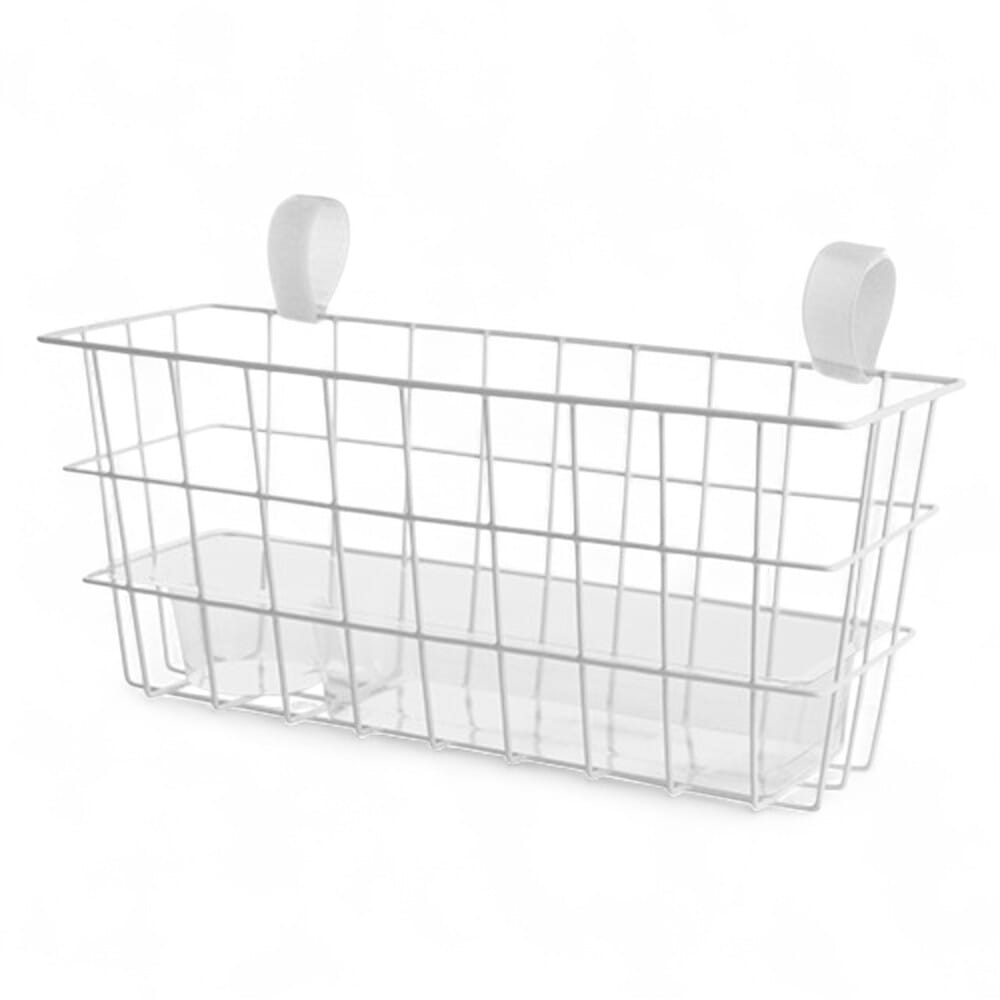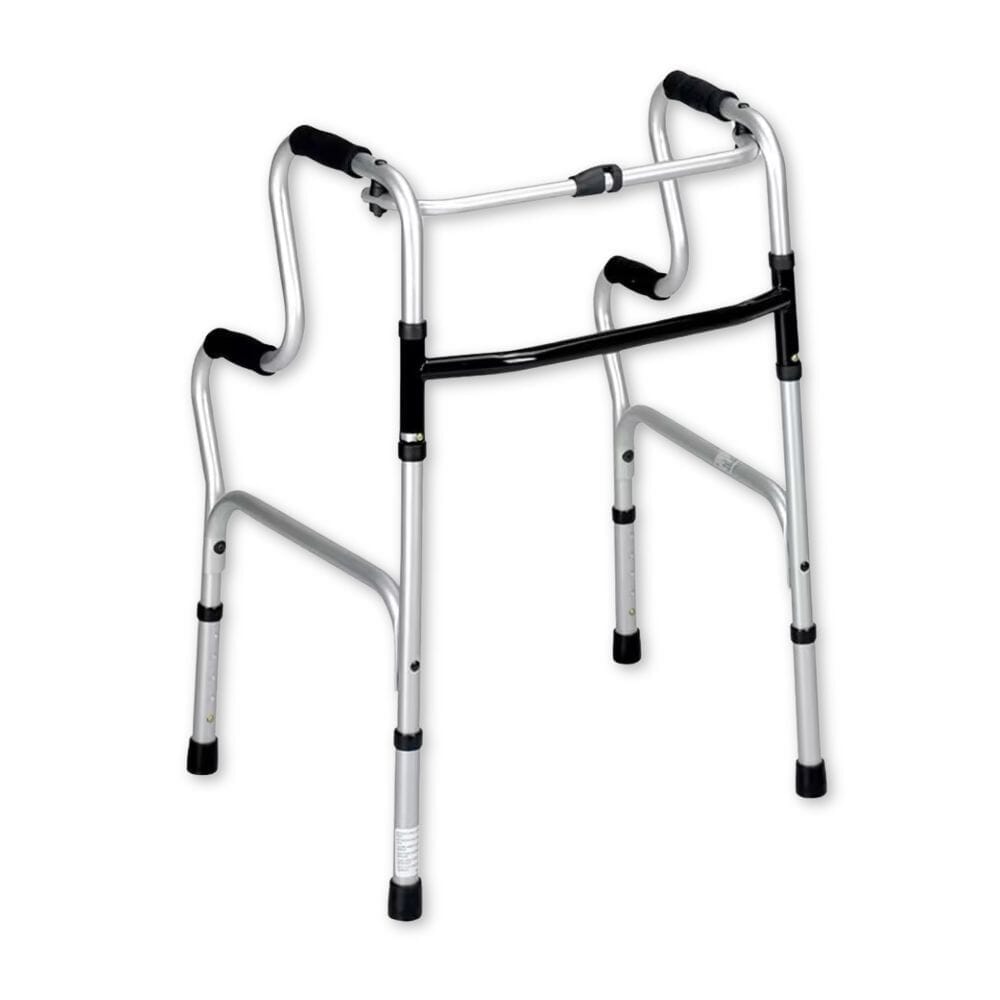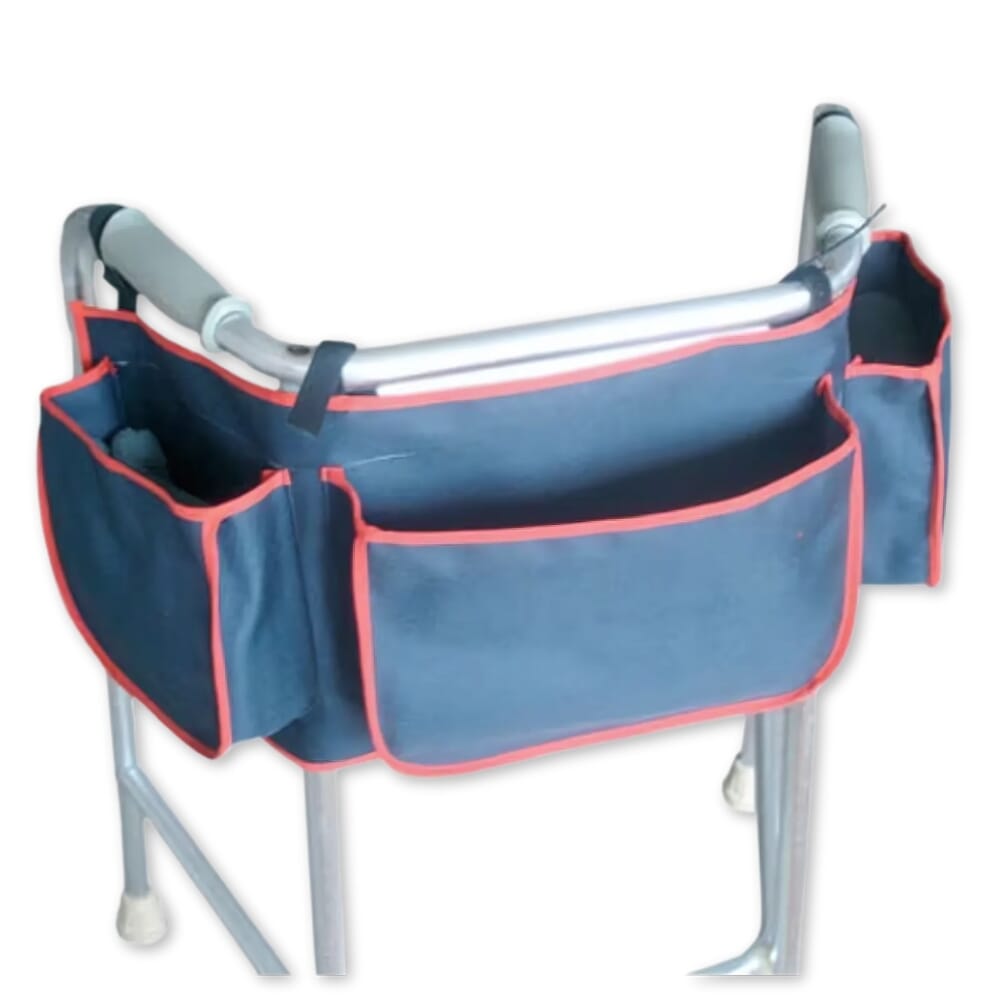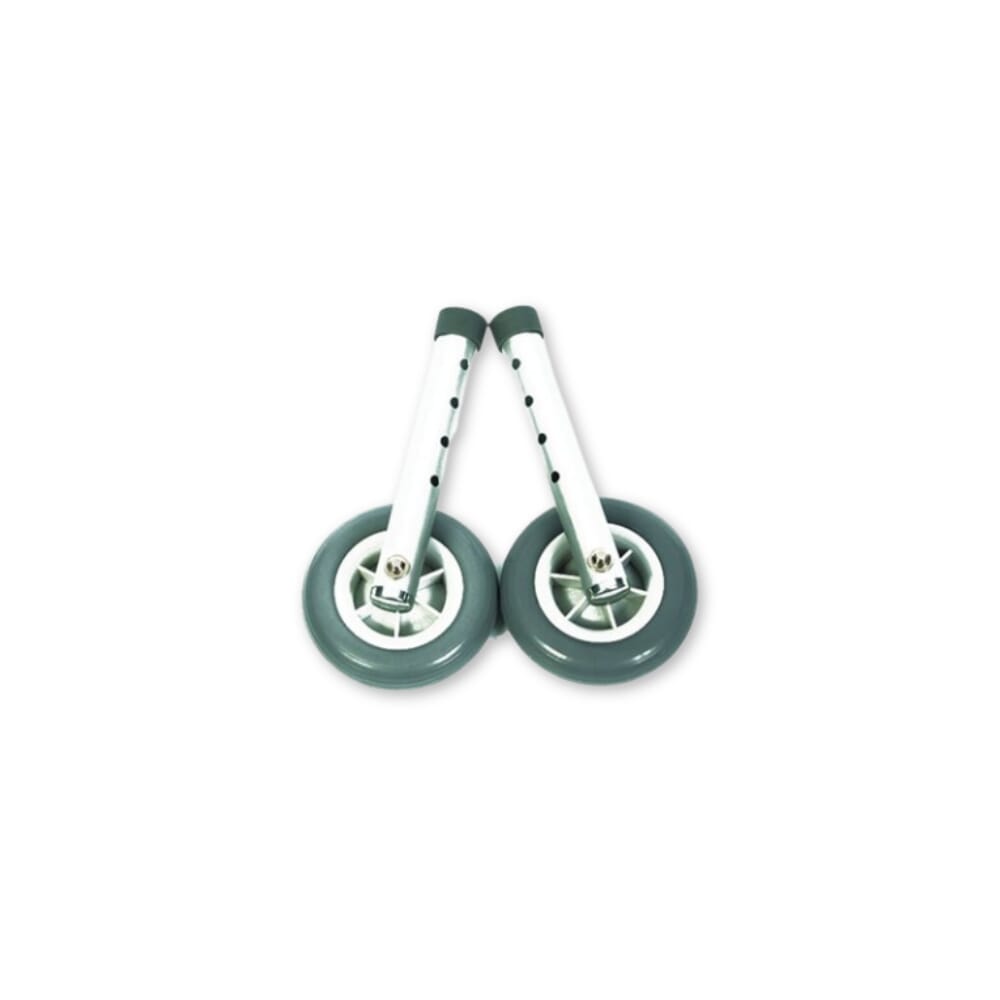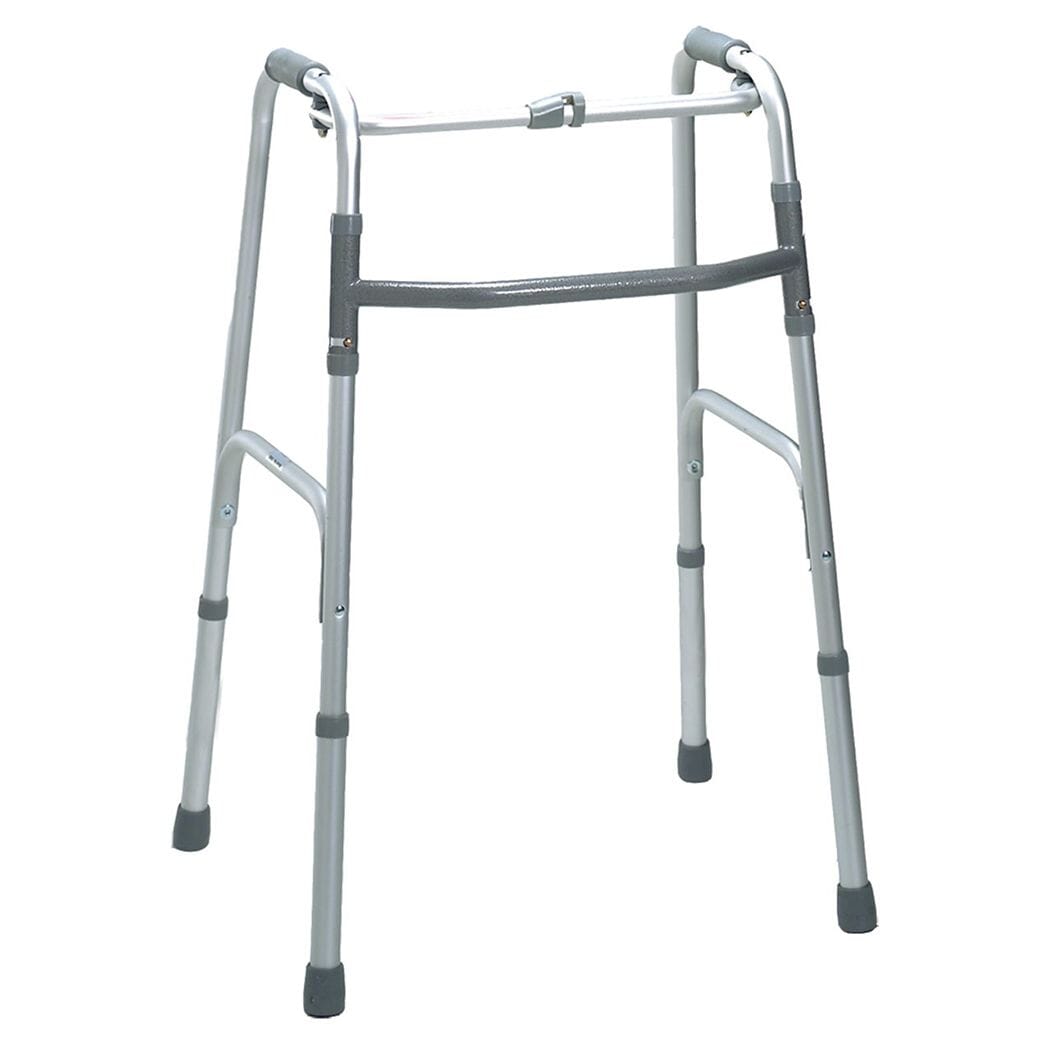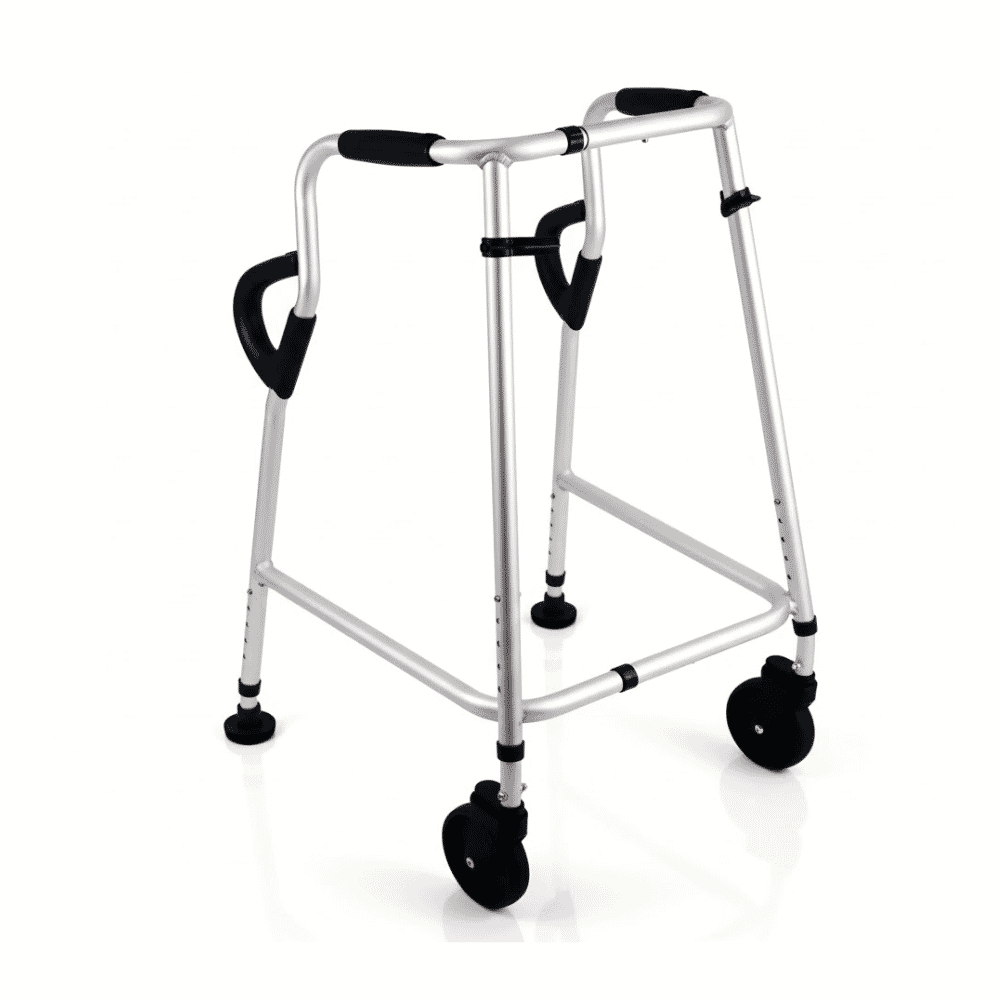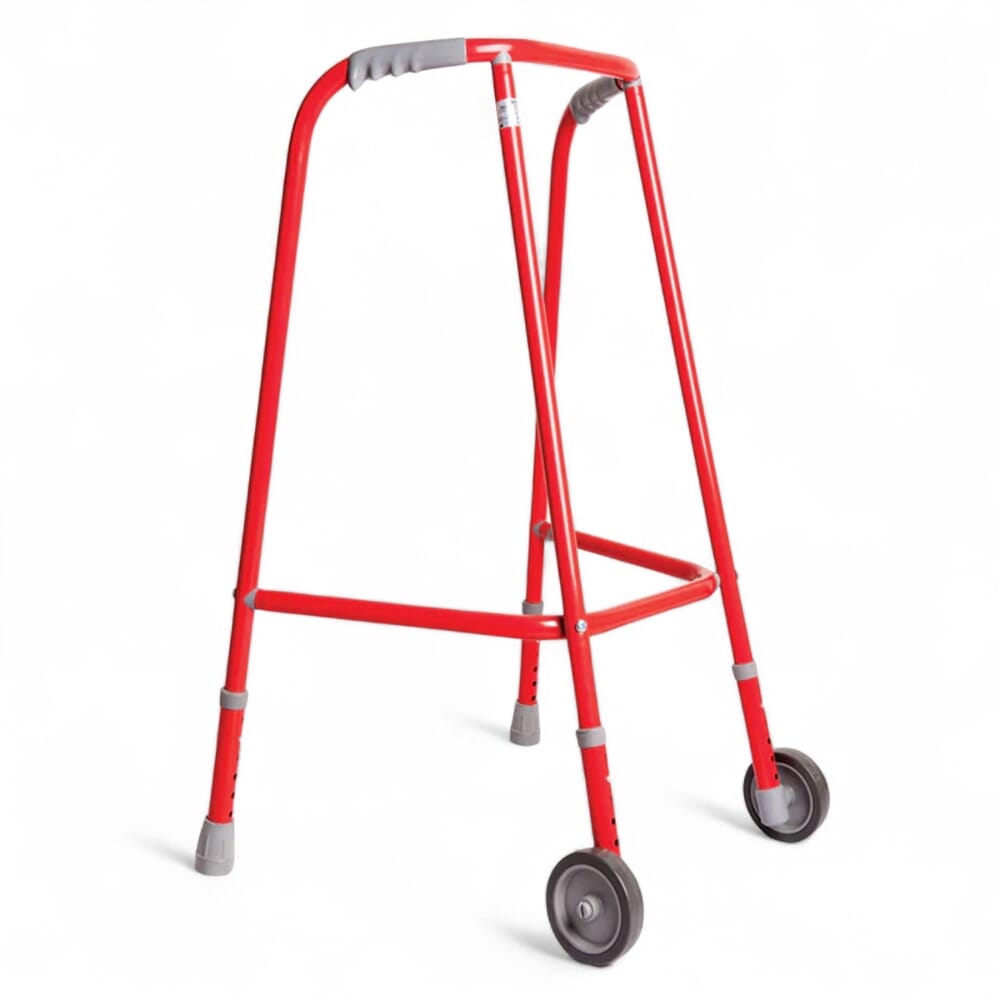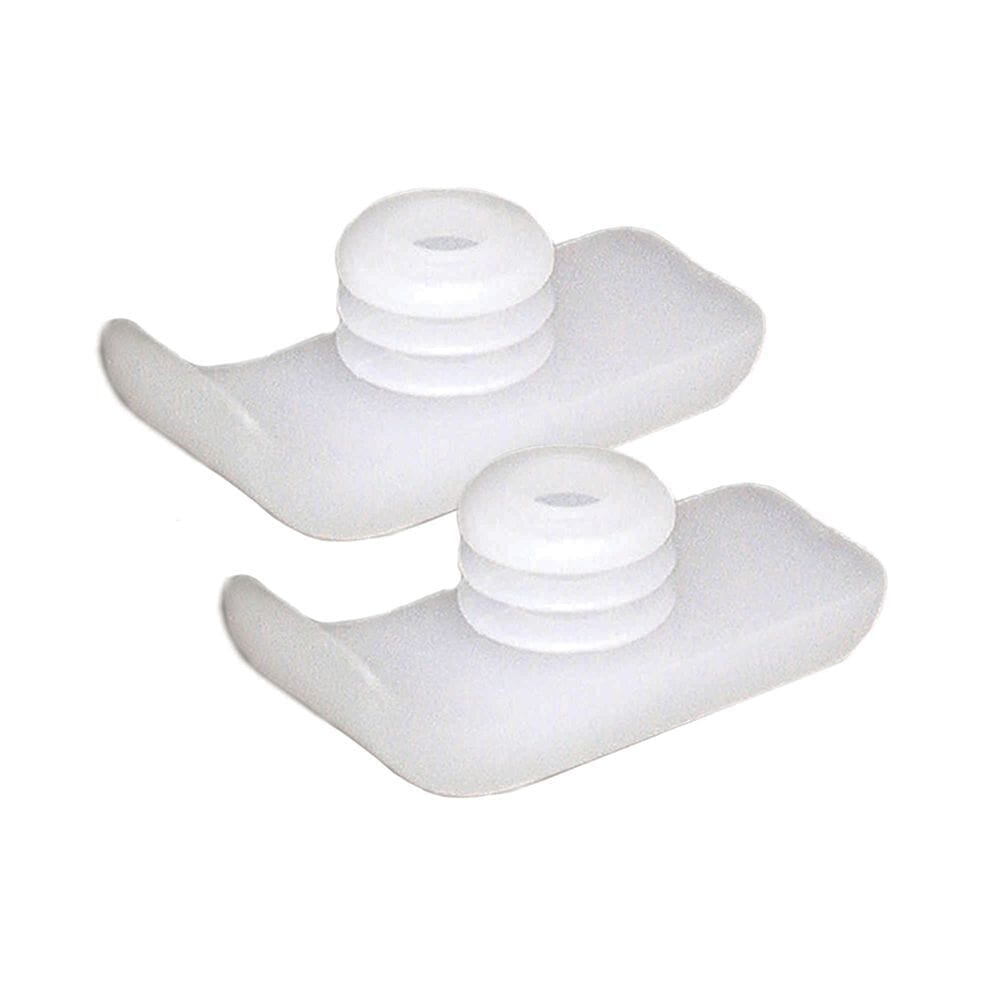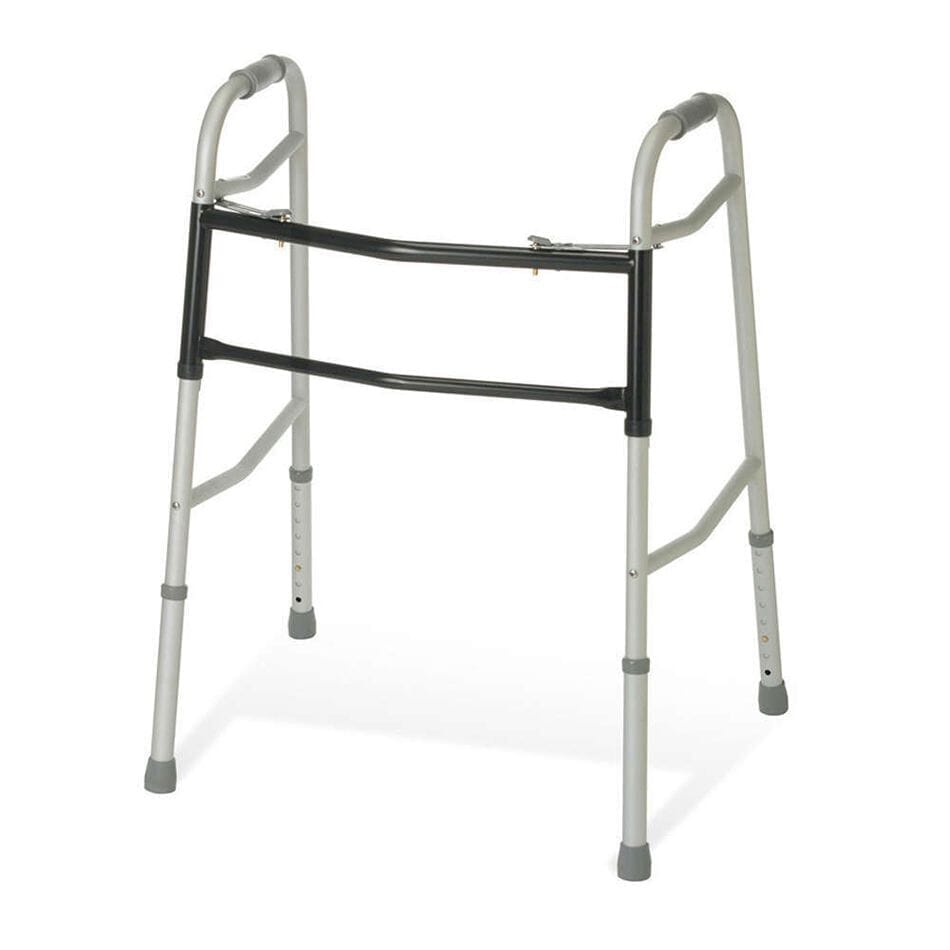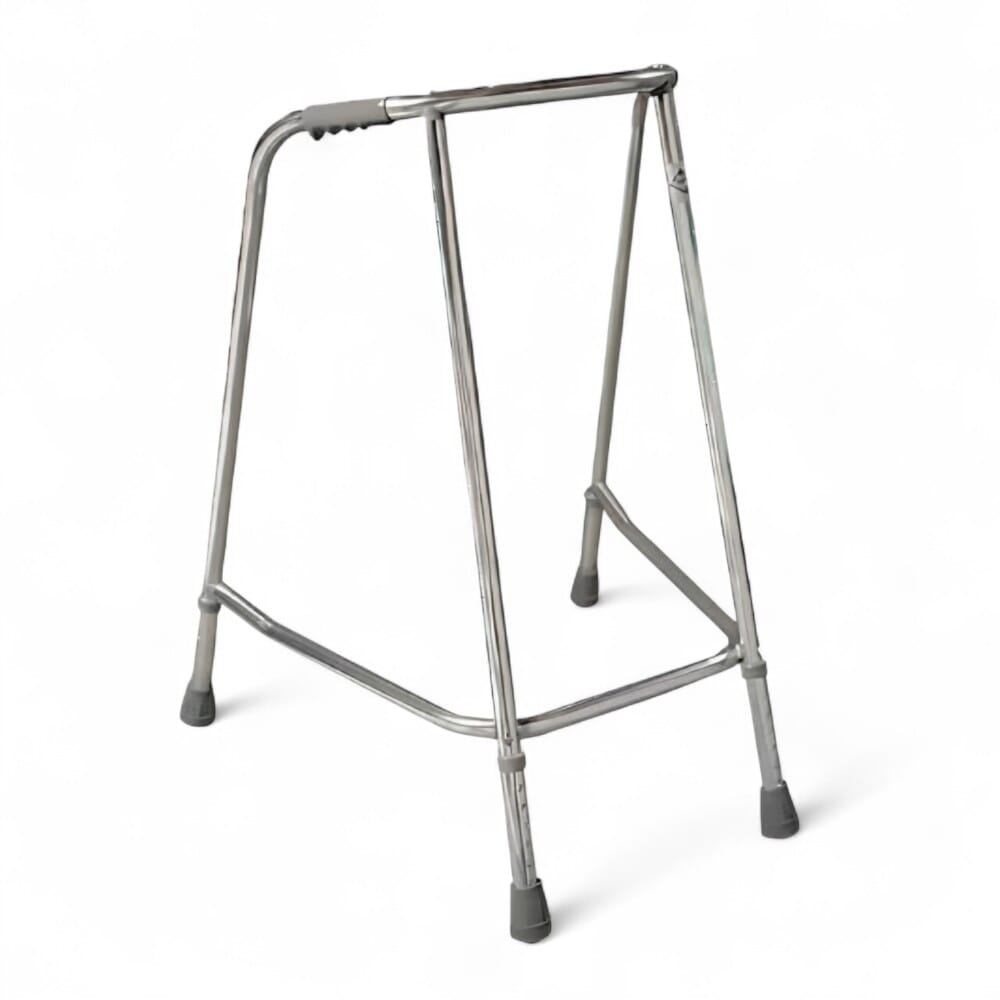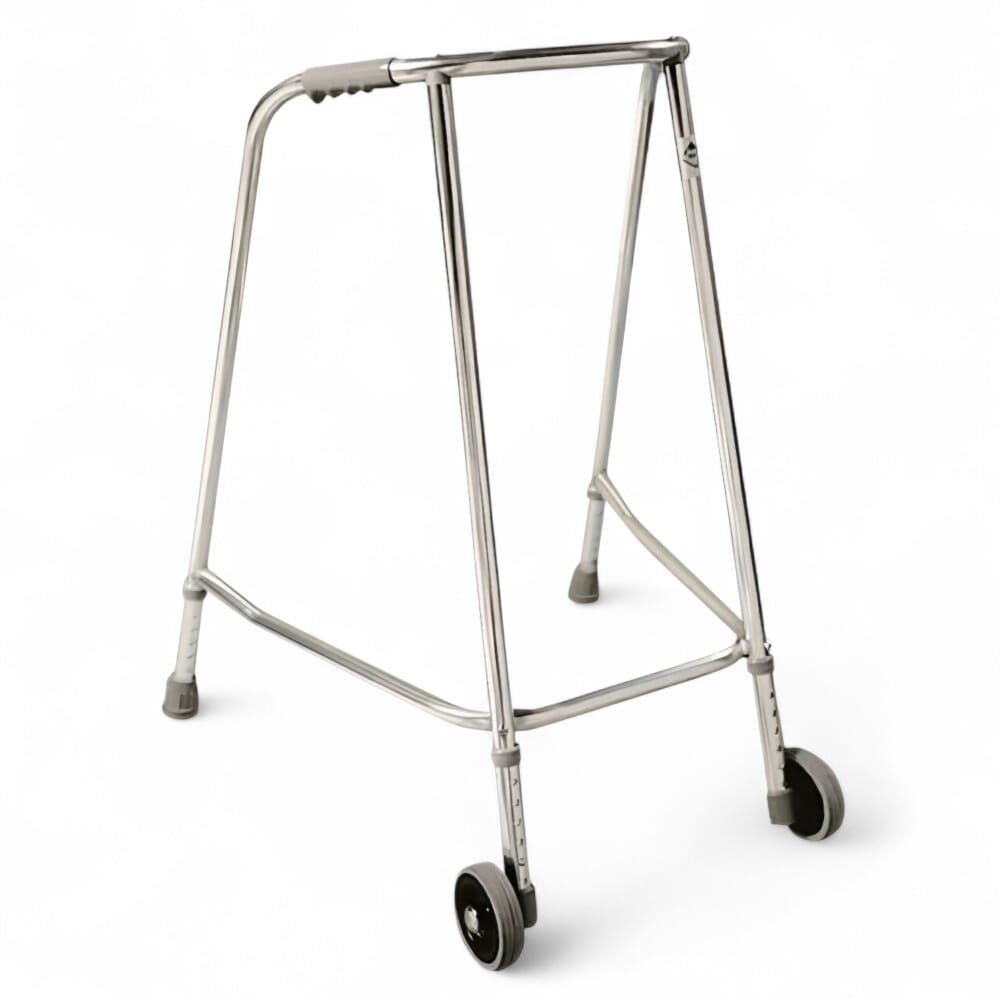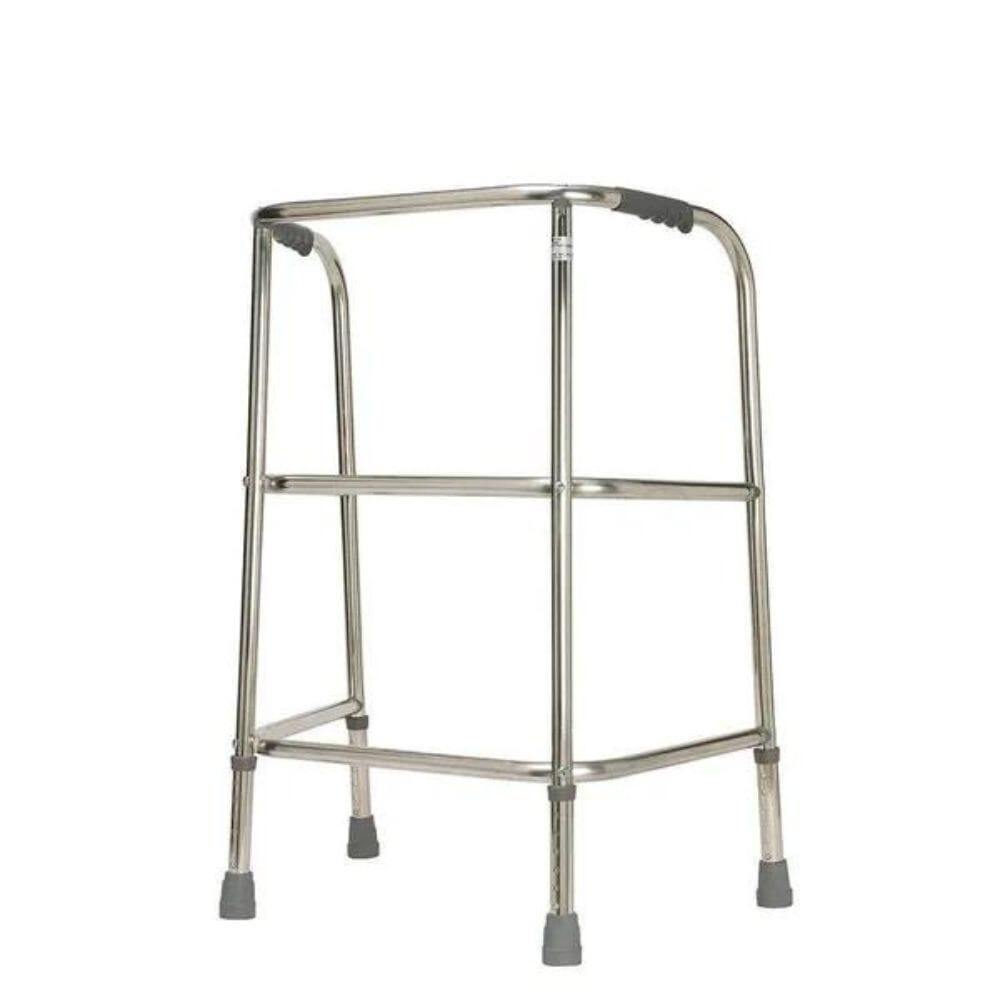Walking Frames & Accessories
Zimmer frames and walking frames help many people retain their mobility and independence. By using walking frames, elderly people or younger people with certain health conditions can sometimes improve their mobility both around the home and outside. These frames are typically made of aluminium - lightweight and easy to move for those with reduced strength. A walking frame with wheels or a folding walking frame are other options also available at Essential Aids.
Items 1-28 of 86
-
Available
Offers
Domestic Walking Frame
This classic walking frame is super lightweight and remains one of our most popular models.3 Options from£32.95with VAT Relief -
Available
Offers
Domestic Frame With Wheels
This high quality, lightweight walking frame comes with wheels for extra mobility.3 Options from£34.90with VAT Relief -
SPECIAL
OFFER
Lightweight Foldaway Wheeled Walking Frame
Effortlessly manoeuvrable, foldable to 13cm, perfect for compact spaces and easy storage.£32.90WAS £67.50with VAT Relief -
Available
Offers
Hospital Frame
Lightweight yet strong, height adjustable frame for assisting mobility in hospitals or homes.2 Options from£32.90with VAT Relief -
Available
Offers
Hospital Frame with Wheels
Lightweight yet exceptionally stable wheeled walking frame designed for safe and confident mobility in clinical and home environments.2 Options from£35.40with VAT Relief -
Available
Offers
Wheeled Walking Frame
High quality lightweight wheeled aluminium walking frame4 Options from£27.90with VAT Relief -
Available
Offers
Walking Frame
Lightweight aluminium walking frame with maximum stability, available in three sizes and supporting users up to 25 st (159 kg).3 Options from£28.90with VAT Relief -
Available
Offers
Ultra Narrow Walking Frame
Ultra narrow aluminium walking frame, ideal for home or travel use in smaller spaces.2 Options from£30.90with VAT Relief -
Available
Offers
Ultra Narrow Walking Frame With Wheels
Lightweight, height-adjustable walking frame with wheels designed for smooth support and easy movement in narrow indoor spaces.2 Options from£36.90with VAT Relief -
SPECIAL
OFFER
Net Bag for Frames
A nylon net bag that clips onto the frame of walkers to give extra storage space.£4.90WAS £13.92with VAT Relief -
Available
Offers
Walking Frame Glide Skis
Easy-fit glide skis that help your walking frame move smoothly and effortlessly across indoor surfaces.2 Options from£3.90with VAT Relief -
VAT Relief
Available
Zimmer Frame
Lightweight yet durable walking frame with rubber feet to help grip most floor types.£77.90with VAT Relief -
SPECIAL
OFFER
The Buckingham Walking Frame Caddy
Practical walking frame caddy that supports safer movement and greater independence at home.£30.00WAS £39.90with VAT Relief -
Available
Offers
Walking Frame Grip Tape
Padded, non-slip grip tape supplied as two rolls per pack to improve comfort and control on walking frame handles.6 Options from£6.90with VAT Relief -
SPECIAL
OFFER
Walking Frame Net Bag
Knotted nylon bag which clips onto most walking frames, helping carry shopping or personal belongings hands free.£4.90WAS £11.90with VAT Relief -
SPECIAL
OFFER
Walking Frame Basket
Walking frame basket made from vinyl coated wire, ideal for carrying items such as shopping hands free.£7.90WAS £14.90with VAT Relief -
SPECIAL
OFFER
Hi-Riser Folding Frame
Highly adaptable walking frame that supports independence, confidence and safer movement throughout the home.£39.90WAS £76.02with VAT Relief -
VAT Relief
Available
Universal Walker Pouch
Universal walking frame pouch with easy velcro straps and three pockets.£12.90with VAT Relief -
SPECIAL
OFFER
Spare Wheels For Walking Frame
A set of spare wheels for use with walking frames.£7.40WAS £8.34with VAT Relief -
VAT Relief
Available
Deluxe Folding Walker
Folds down with the touch of a button and features a lightweight aluminium frame with height adjustable legs.£94.90with VAT Relief -
Available
Offers
Walk Safe Walking Frame
Thoughtfully designed indoor walking frame that focuses on stability, comfort, and confidence during everyday movement.2 Options from£69.90with VAT Relief -
Available
Offers
Red Wheeled Walking Frame
Red walking frame to help patients with dementia and visual impairments.3 Options from£42.90with VAT Relief -
Available
Offers
Walker Glides
Simple, practical alternative to rubber ferrules that makes indoor walking frame use easier and smoother.2 Options from£5.40with VAT Relief -
SPECIAL
OFFER
Bariatric Heavy Duty Folding Walking Frame
A extra wide folding walking frame with 35 stone user weight capacity.£59.90WAS £73.71with VAT Relief -
Available
Offers
Hospital Walking Frame
British-made aluminium hospital walking frame with non-marking tips, adjustable height, and a maximum user weight of 25 st (160 kg).3 Options from£29.90with VAT Relief -
Available
Offers
Hospital Wheeled Walking Frame
Lightweight aluminium hospital wheeled walking frame with front rubber-tyred wheels, available in three sizes for users up to 25 st (160 kg).3 Options from£31.90with VAT Relief -
SPECIAL
OFFER
Buckingham Walking Frame Caddy
Practical walking frame caddy that supports safer movement and greater independence at home.£30.00WAS £39.90with VAT Relief -
Available
Offers
Heavy Duty Walking Frame
Heavy duty aluminium walking frame designed to assist heavier users in the home.2 Options from£99.00with VAT Relief
Frequently Asked Questions
What is a walking frame?
Who might use a walking frame?
Do walking frames have front wheels?
Can I adjust the height of my walking frame?
Are there walking frames for heavier people?
Are walking frames easy to manoeuvre?
I don't have much space - can I still use a walking frame?
What is the difference between a walking frame and a rollator?
